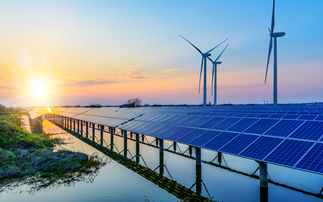
Credit: iStock
Influential investor group urges governments to act 'pressingly and decisively' to provide policies in line with 1.5C warming goal
The Net-Zero Asset Owner Alliance (NZAOA) has revealed today that financed greenhouse gas emissions from its 88 members, which collectively boast $9.5tr of assets under management, have fallen by an average...
To continue reading this article...
Join BusinessGreen
- Enjoy exclusive news, insights and analysis from Europe’s leading source of information on the green economy and business.
- Make smart, responsible business decisions with an eye on the latest regulatory and tech development
- Tap into our extensive archive of exclusive articles, news, analysis and guide
- Access to our new BusinessGreen intelligence service, providing you with
- > Exclusive in-depth case studies
- > Policy briefings, white papers and reports on market trends that are shaping the direction of the net zero transition
- > Our overnight briefing, expertly curated help you run a competitive and sustainable business
- > Online and interactive meetings with BusinessGreen’s editors to discuss the crucial stories and trends from the past month
Choose the membership package that's right for you and your organisation, via our 3 membership levels.








